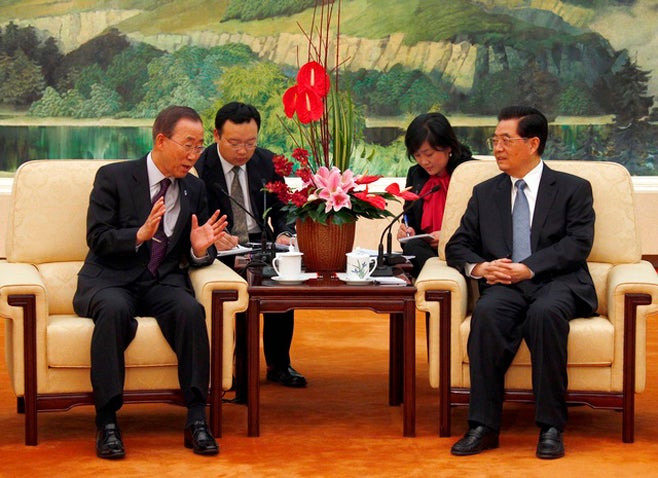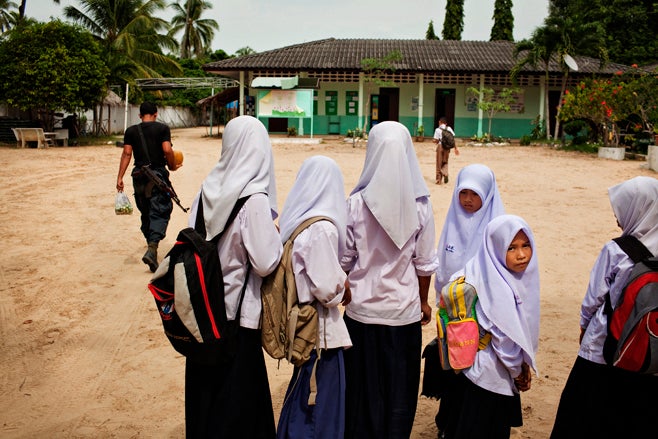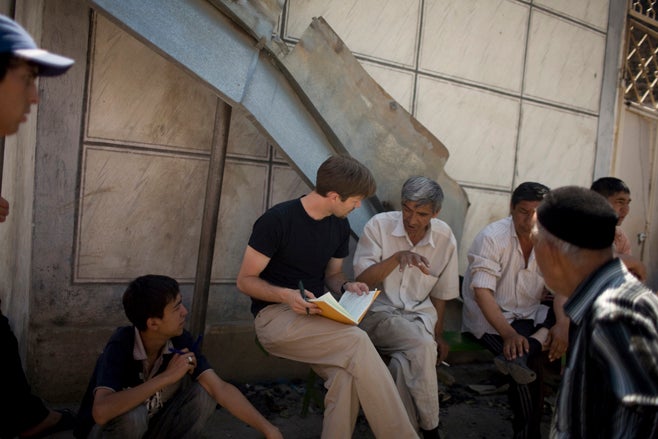On September 30 President Rafael Correa was held captive inside a hospital for several hours by police who were protesting a law that diminished benefits for law enforcement officers. During the standoff, the government declared a state of emergency and ordered all TV stations to transmit the official channel's programming. A shootout broke out when members of the military rescued President Correa, resulting in at least five deaths. The government stated the events constituted an attempted coup d'etat. At this writing hundreds of police officers are under investigation.
At least a dozen participants in protests and demonstrations were prosecuted or investigated in 2010 on the exaggerated charge of terrorism, due to the overly broad provisions of the criminal code. Police officers responsible for abuses in previous years have not been held accountable.
Criminal defamation laws that restrict freedom of expression remain in force. Some articles of the draft Communications Law could open the door to media censorship. At this writing there is still no date set for the debate on the bill in the National Assembly.
Misuse of Anti-Terror Laws in Dealing with Social Protests
Prosecutors have applied a "terrorism and sabotage" provision of the criminal code in cases involving protest marches that have ended in confrontations with police. Involvement in acts of violence during lawful protests should be an ordinary criminal offense. Yet Ecuador's criminal code includes, under the category of sabotage and terrorism, "crimes against the common security of people or human groups of whatever kind, or against their property," by individuals or associations "whether armed or not." Such crimes carry a possible prison sentence of four to eight years.
In June 2010 Marlon Santi, president of the Confederation of Indigenous Nationalities of Ecuador (CONAIE), Ecuador's largest indigenous organization, and two other indigenous leaders were under criminal investigation for terrorism and sabotage after leading a protest during a meeting of the Bolivarian Alliance for the Americas (ALBA) in the city of Otavalo. Protesters broke through a police barrier to gain entry to the building where Presidents Hugo Chávez, Evo Morales, and Rafael Correa were meeting. In September a judge charged Pepe Acacho, a Shuar indigenous leader, and 10 others, with sabotage and terrorism for their alleged participation in violent protests in September 2009 in the city of Macas in the Ecuadorean Amazon, in which a teacher was killed. According to the Ministry of Justice, Acacho was accused of using a community radio station he directed, Radio La Voz de Arutam, to incite demonstrators to take to the streets with poisoned spears to protest the government's alleged intent to privatize water.
In August a judge ordered the preventive detention of Juan Alcívar, a reporter for La Hora newspaper and El Nuevo Sol radio station, on terrorism charges. Two employees of the La Concordia town council accused Alcívar of throwing a tear gas canister at President Correa during a demonstration, causing the Ecuadorean leader to have to cover his face with a mask. Alcívar, who was an outspoken critic of La Concordia's mayor, argues he merely pushed the canister away. In September the judge lifted the detention order, but the terrorism case against him continued.
Accountability
Impunity for police abuses, including extrajudicial executions, is widespread, and those responsible for murders often attributed by police to a "settling of accounts" between criminal gangs are rarely brought to justice. In a June 2010 statement Philip Alston, the United Nations special rapporteur on extrajudicial executions, described the justice system as "broadly dysfunctional." The same month a truth commission created by the Correa administration published a report documenting 68 extrajudicial executions and 17 "disappearances" between 1984 and 2008, and named 458 alleged perpetrators of abuses. According to the commission, few of those responsible for the abuses had been held accountable due to statutes of limitations, jurisdictional disputes, and procedural delays. In October 2010 a team of prosecutors appointed by the attorney general to investigate cases reported by the commission began re-interviewing suspects and witnesses.
Indigenous Justice
Competing jurisdiction of the ordinary courts and of traditional indigenous authorities, which have equal status under the 2008 constitution, has been a source of controversy. Critics of indigenous justice maintain that it is responsible for a number of recent lynchings, which received wide press coverage. In 2010 two UN rapporteurs-on extrajudicial executions and on indigenous peoples-criticized these allegations as unfounded. Both urged dialogue to resolve possible conflicts between the two spheres of justice. At this writing the government is working on draft legislation to determine the scope of each jurisdiction.
Freedom of Expression
The Ecuadorean criminal code still has provisions criminalizing "desacato," under which anyone who "offends" the president or other government authorities may receive a prison sentence of up to three months (for offending officials), and up to two years (for offending the president).
Journalists also face prison sentences for criminal defamation of public officials. In March 2010 Emilio Palacio, an editorial writer for the Guayaquil newspaper El Universo, received a three-year prison sentence for calling the president of a government-run financial institution "a thug" in an August 2009 editorial. The Inter-American Commission on Human Rights has urged member states to abolish "desacato" provisions, and to use only civil sanctions to guarantee protection of public officials' reputations.
From September 2009 until June 2010 a National Assembly committee debated draft legislation to regulate media. The draft Communications Law contains positive elements that would strengthen free expression if enacted. It explicitly prohibits monopolies and oligopolies in media ownership, potentially extending the range and diversity of public debate. It broadens access for those with hearing disabilities by promoting subtitles and sign language.
However, the bill contains several provisions that could undermine freedom of expression. It includes restrictions whose vague language could open the way for prior censorship, which the American Convention on Human Rights explicitly prohibits. Employing the same language included in the constitution, it refers to the right to freedom of expression as "the search, reception, exchange, production and dissemination of truthful, verified, opportune, contextualized and plural information." Such definition is at odds with Principle 7 of the Declaration of Principles of Freedom of Expression, endorsed by the Inter-American Commission on Human Rights that states that the "prior conditioning of expressions... is incompatible with the right to freedom of expression." Moreover, the bill allows an exception to the prohibition of prior censorship "in those cases established... in the law."
In addition, the proposed law includes sanctions that impose unreasonable restrictions on free expression, and could allow undue interference in the work of media outlets. Infractions for which an outlet could be punished include failure "to observe its ethics code," and publishing unsigned or anonymous letters. At this writing the bill had still to be debated on the floor of the legislature.
Human Rights Defenders
President Correa has frequently accused environmental activists and NGOs defending indigenous rights of interfering in politics, promoting violence, and receiving funds from abroad to destabilize the country. In July 2010 Correa threatened NGOs that "meddle in politics" with expulsion from the country. In October he stated that he would review the list of some 50,000 NGOs registered in Ecuador, some of which he said were suspected of tax evasion and prejudicing the state.
In July unidentified assailants kidnapped Germán Antonio Ramírez Herrera, a forensic expert specializing in investigating torture and extrajudicial executions, forced him into a car, and later shot him. Ramírez, an expert consultant for PRIVA, a member organization of the International Rehabilitation Council for Torture Victims, had been investigating prisoners' injuries following a police raid at the prison of Quevedo, where he was a forensic doctor. He was killed on the same day that he presented evidence to the UN's special rapporteur on extrajudicial executions. Ramírez was reported to have received death threats previously.
Key International Actors
Members of the Union of South American Nations organized an emergency meeting in Buenos Aires to support the presidency of Rafael Correa after he was held by police in September. Other governments and international institutions, including the United States and the Organization of American States (OAS) also expressed support for Ecuador's democratic institutions.
After visiting Ecuador in July, the UN's special rapporteur on extrajudicial executions criticized the justice system's failure to hold accountable those responsible for execution-style killings, whether committed by state agents, hired assassins, or illegal armed groups. The OAS rapporteur on persons deprived of liberty, who visited Ecuador in May 2010, stated that he had received reports of continuing police torture. He urged Ecuador to ratify the Optional Protocol to the Convention against Torture.
In May 2010 a court in Ontario, Canada struck out a claim for damages that three Ecuadorean community leaders had filed against two directors of the Copper Mesa Mining Corporation and the Toronto Stock Exchange, where the company is listed. Since 2006, residents of Imbabura province, northern Ecuador, have received repeated death threats because of their opposition to a mining project in the area. On one occasion, Copper Mesa company guards physically attacked them, an incident captured on film. The court argued the plaintiffs had failed to establish the responsibility of the company directors and the stock exchange in causing the alleged harm.



